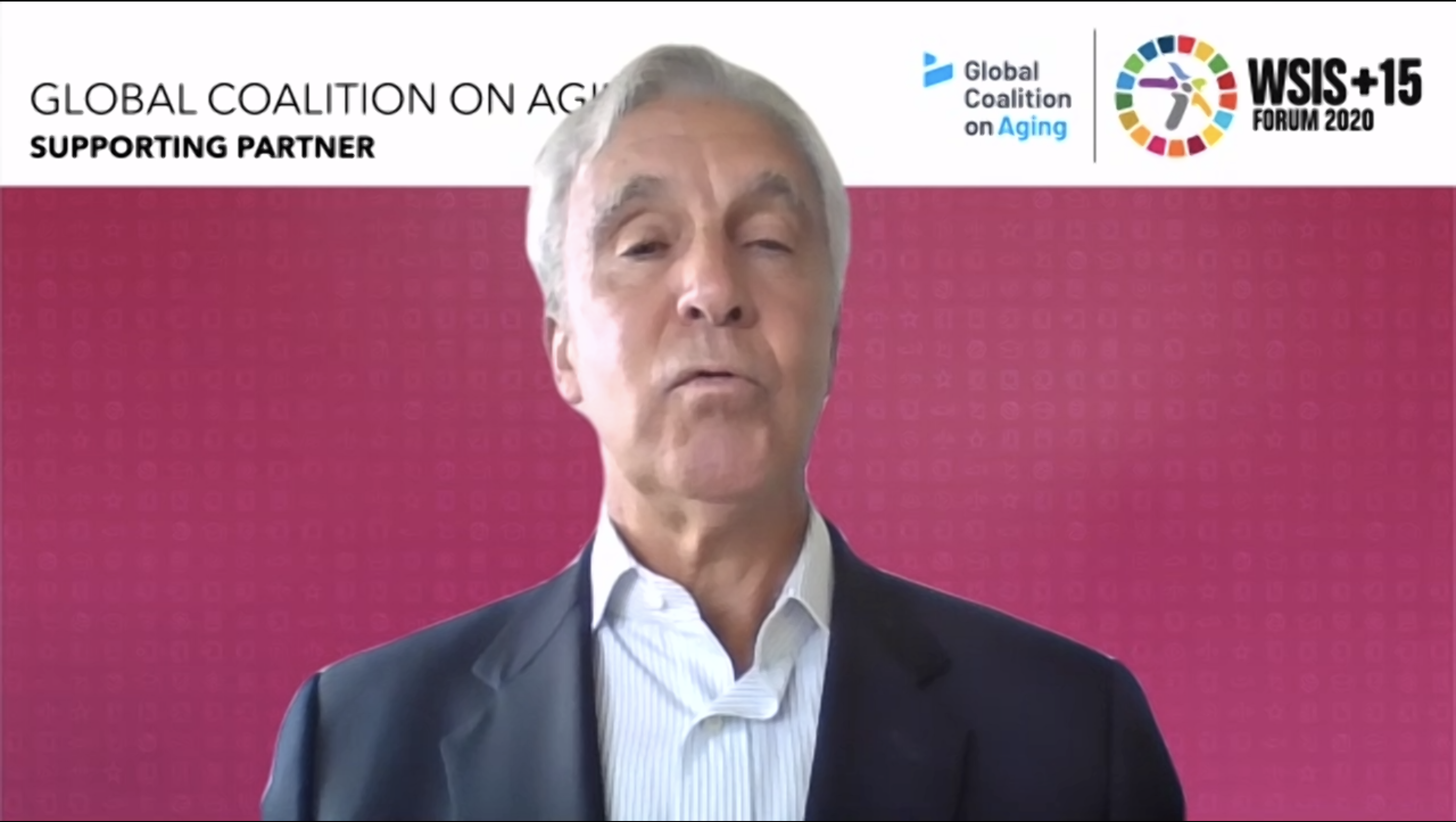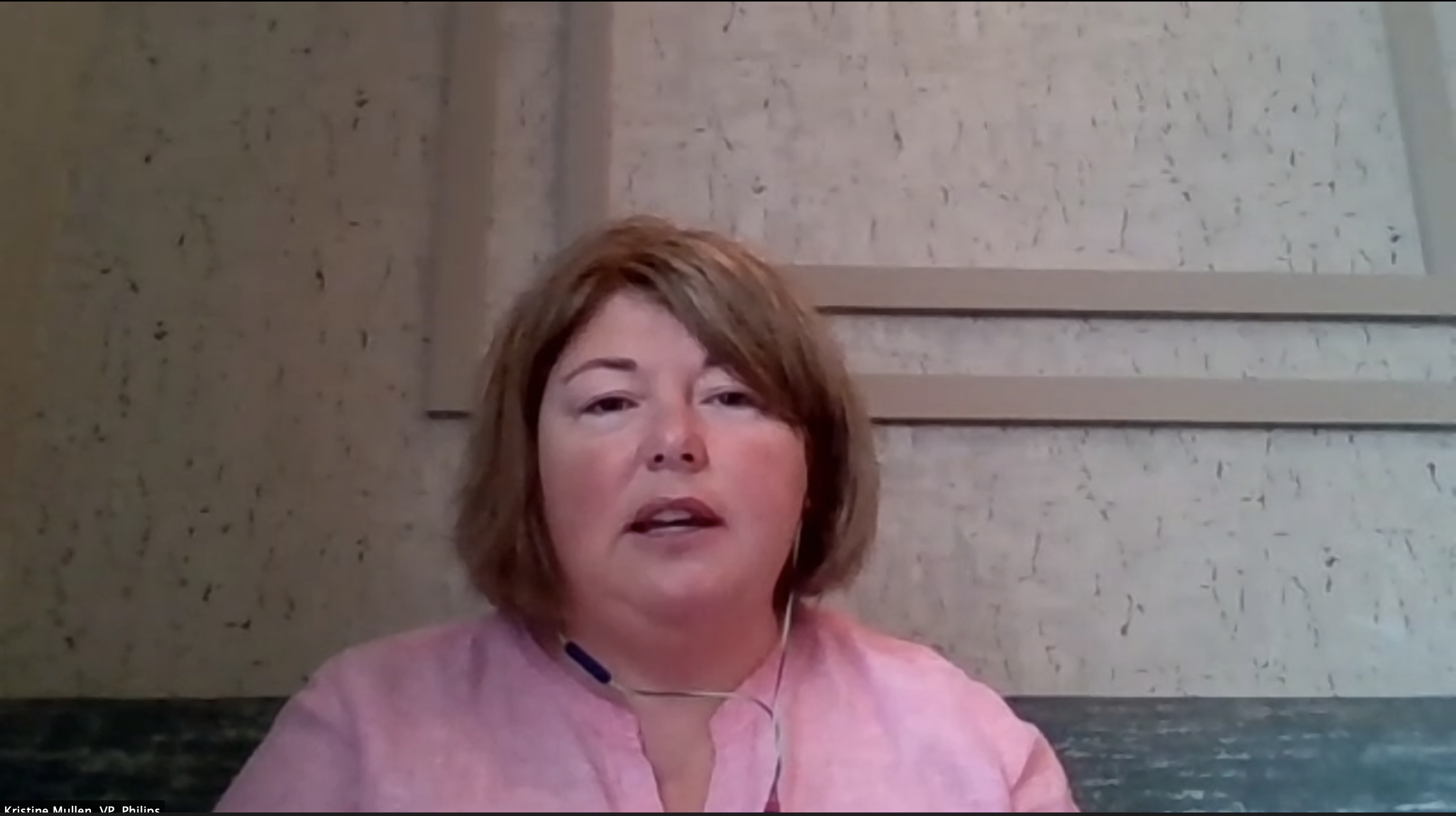Heart Failure Through the Aging Lens: Data, Digital Solutions, and Patient Empowerment
The Global Coalition on Aging
Session 281
Heart failure affects at least 26 million people around the world and is the most common diagnosis in hospital patients over 65. According to the World Heart Federation, there are an estimated 11.7 million cases of undiagnosed heart failure globally. A major barrier to detecting, diagnosing, and therefore treating heart failure is the often subtle ageism that assumes symptoms of heart failure—including tiredness, weakness, shortness of breath—to be “normal parts of aging.” This ageism persists from healthcare professionals to families and those who become HF patients themselves. ICTs have great potential for monitoring, education, and predictive analytics, which will lead to earlier diagnosis, optimal treatment and care (including prevention of costly hospital admissions and re-admissions), and therefore cost savings for patients, their families and health systems overall.

Melissa Gong Mitchell is Executive Director of the Global Coalition on Aging, the leading business voice on aging policy and strategy. She also serves as Managing Director at High Lantern Group, a strategic communications consulting firm. GCOA uniquely brings together global corporations across industry sectors to promote good public policy and market-based solutions centered on healthy and active aging. In her role, Melissa is responsible for the operations and management of the coalition, internal and external communication strategies, and member and stakeholder outreach and development, including fostering relationships and aligning partners across industry, academia, the NGO community, advocacy organizations, governments and global institutions. Melissa has spoken around the world about the opportunities of the aging mega-trend and the role of business in leveraging aging for economic growth. She has served as a member of the Professions Working Group that advises the Age-friendly New York City Commission and as a member of the Benefit Committee of the Skin Cancer Foundation.

Julia gained degrees in Biochemistry and Oncology from Liverpool University before joining the pharmaceutical industry in 1991. After fulfilling several NHS liaison roles and gaining a Diploma in Business Management and PRINCE2 Practitioner certification, Julia co-founded the health informatics agency Harvey Walsh Ltd in 2003. The company grew steadily working with over 80 organisations from both the private and public sectors, before the company’s sale in 2012 to Open Heath Ltd.
In 2017, following 5 years with Open Health, Julia joined Imperial College Health Partners (ICHP) as the head of data and analytics. ICHP works in collaboration with thier health partners to generate evidence-based change to improve patient outcomes and system efficiencies. Having specialist expertise in healthcare data sets and the software application for visualisation and machine learning, Julia is focused on the adoption and spread of innovation working with NHS England, NHS Rightcare, NHS Improvement, NHS Trusts nationally and private companies.

Mitchell Psotka, MD, PhD is Director of the Infiltrative Cardiomyopathy Center at the Inova Heart and Vascular Institute in Falls Church, Virginia. He also serves as Associate Director of Heart Failure Site-Based Research. He is a heart failure and transplant cardiologist and clinical trialist who specializes in cardiomyopathies and pharmacologic as well as mechanical circulatory support, including for right ventricular failure and pulmonary hypertension.
He received his medical degree and Doctorate from the University of Virginia School of Medicine, in Charlottesville, Virginia, and completed his residency and fellowship training in internal medicine, cardiology, advanced heart failure and transplant, pulmonary hypertension, and clinical research at the University of California San Francisco.
Kristine Mullen is the North American Market Leader, Population Health Management for Philips, the leading health technology company focused on improving people's health and enabling better outcomes across the health continuum from healthy living and prevention, to diagnosis, treatment and home care.
Prior to Philips, Kristine had multiple positions in the healthcare industry accumulating more than 20 years of health care experience across the areas of integration of delivery systems, physician relations, long-term care, and, as a senior vice president in one of the nation’s largest payer organizations, Kristine Mullen partnered with both established and start-up organizations to transform businesses and work to improve the health and happiness of consumers everywhere.
Throughout her career, Kristine has been a passionate advocate of innovative digital health offerings that provide healthcare practitioners, employers and members differentiated solutions focused on improving health and well-being, slowing progression of disease and increasing productivity. She was a pioneer in integrating and connecting into the larger healthcare ecosystem to drive desired health actions, leveraging data and analytics that make it easier for consumers to achieve their best health.
Kristine has held senior level positions in digital, product, marketing, sales, business development, regulatory compliance, innovation, strategy and operations and maintained profit and loss responsibilities for a wellness division serving nearly 30 million consumers and representing over $300M in annualized revenue. Kristine brings a unique and diverse perspective to the discussion on what makes population health, analytics and well-being such a critical part of the current and future landscape of healthcare.

Jean-Luc Eiselé, PhD, has worked in medical professional association management for 11 years. He earned a MSc in Natural Sciences from Lausanne University, Switzerland. He received a PhD in Microbiology from Basel University, Switzerland. Part of his PhD work was conducted at the European Molecular Biology Laboratory in Heidelberg, Germany. After completing a post-doc at the Institute Pasteur in Paris, France, he was offered a permanent position. In 1999, Jean-Luc joined the European Respiratory Society (ERS) in Lausanne as Scientific and Educational Activities Manager. In 2001, he was promoted to Deputy Executive Director and in 2007 appointed Executive Director of ERS. Jean-Luc has extensive international experience in the field of association management, public health and advocacy. Previous roles include Director of Les Ligues de la santé, which focuses on primary prevention and health promotion, and Executive Director of the FDI World Dental Federation. In this latter role, he was responsible for developing global and national advocacy activities, and successfully launching and developing World Oral Health Day. Jean Luc Eiselé was appointed World Heart Federation’s Chief Executive Officer, effective from 1 May 2017.
-
 C1. The role of governments and all stakeholders in the promotion of ICTs for development
C1. The role of governments and all stakeholders in the promotion of ICTs for development
-
 C2. Information and communication infrastructure
C2. Information and communication infrastructure
-
 C3. Access to information and knowledge
C3. Access to information and knowledge
-
 C4. Capacity building
C4. Capacity building
-
 C5. Building confidence and security in use of ICTs
C5. Building confidence and security in use of ICTs
-
 C7. ICT applications: benefits in all aspects of life — E-health
C7. ICT applications: benefits in all aspects of life — E-health
-
 C8. Cultural diversity and identity, linguistic diversity and local content
C8. Cultural diversity and identity, linguistic diversity and local content
-
 C11. International and regional cooperation
C11. International and regional cooperation
-
 Goal 3: Ensure healthy lives and promote well-being for all
Goal 3: Ensure healthy lives and promote well-being for all
-
 Goal 16: Promote just, peaceful and inclusive societies
Goal 16: Promote just, peaceful and inclusive societies
-
 Goal 17: Revitalize the global partnership for sustainable development
Goal 17: Revitalize the global partnership for sustainable development







